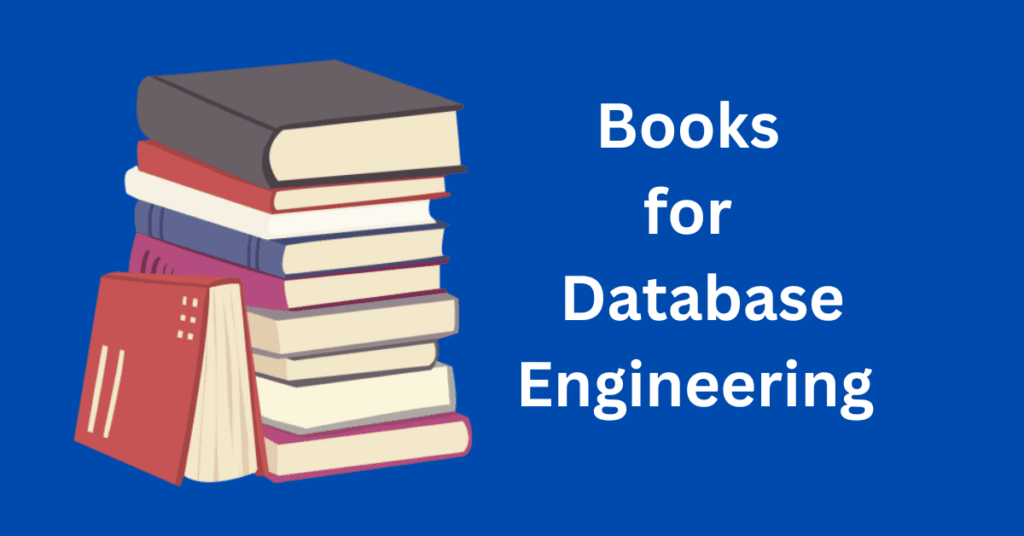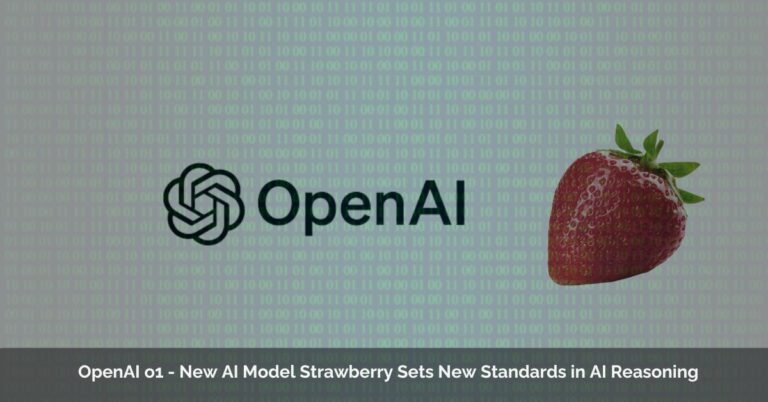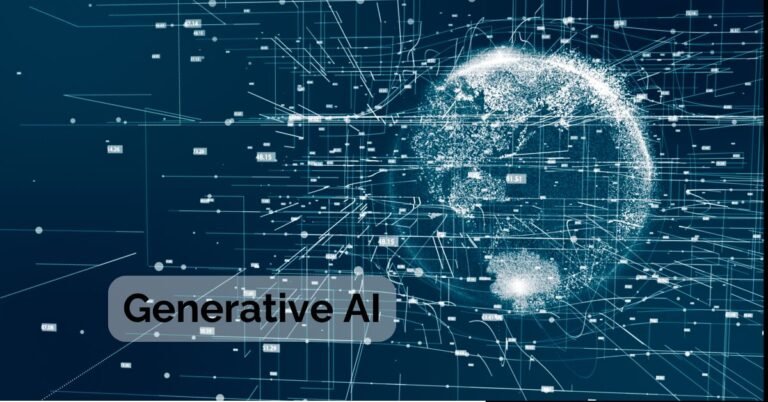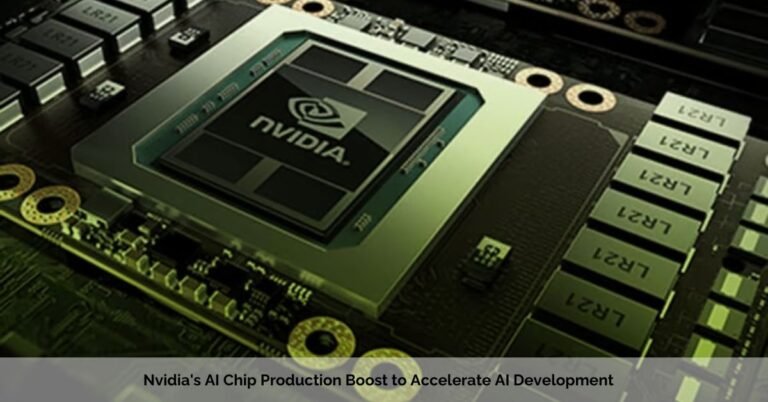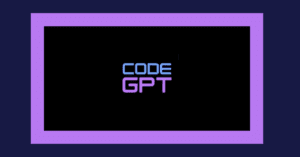In the fast-paced world of data, building efficient and scalable data pipelines is a superpower. But mastering this art requires delving into the secrets of database engineering, where books become your trusty tomes. Buckle up, because we’re about to embark on a journey through the top database engineering books that will empower you to craft robust data infrastructure!
What is Database Engineering?
Database engineering is a key area in computer science and IT, focusing on creating, implementing, and managing database systems. It involves:
- Database Design: Conceptualizing and structuring databases for efficient data storage, retrieval, and management.
- Database Development: Implementing designs using DBMS, involving tables, relationships, constraints, and SQL programming.
- Performance Tuning: Optimizing databases for efficient performance under various loads.
- Data Integrity and Security: Ensuring data accuracy, consistency, and implementing security measures.
- Database Migration and Integration: Transferring and integrating data across different sources and database systems.
- Maintenance and Troubleshooting: Regularly updating and fixing issues in database systems.
- Emerging Technologies: Keeping up with new trends like big data, cloud computing, and NoSQL databases.
Database engineering is vital for the functionality and security of software applications, handling data efficiently and securely.
Scope of Database Engineering:
The scope of database engineering is broad and multifaceted, encompassing various responsibilities and areas of expertise:
- Database Design and Modeling: Creating efficient and effective database structures to store and manage data.
- Implementation and Development: Building databases using database management systems (DBMS) such as MySQL, Oracle, SQL Server, and implementing features like tables, views, and stored procedures.
- Performance Optimization: Tuning databases for optimal performance, including query optimization and indexing.
- Data Integrity and Security: Ensuring data accuracy, consistency, and security through constraints, access controls, and encryption.
- Data Migration and Integration: Managing the transfer of data between different databases and systems, and integrating diverse data sources.
- Database Administration: Overseeing the maintenance, backup, and recovery of databases to ensure their availability and reliability.
- Troubleshooting and Support: Identifying and resolving database-related issues and providing technical support.
- Adherence to Standards and Best Practices: Ensuring compliance with industry standards and best practices in database design and management.
- Emerging Technologies and Trends: Keeping up-to-date with advancements such as cloud databases, NoSQL, big data technologies, and distributed databases.
- Collaboration and Consulting: Working with cross-functional teams, including developers, system architects, and business analysts, and providing expertise in database-related decisions.
- Capacity Planning and Scalability: Planning for future growth and scalability of database systems to accommodate increasing data and user loads.
- Disaster Recovery and Business Continuity: Establishing and maintaining disaster recovery strategies and business continuity plans for database systems.
- Regulatory Compliance: Ensuring that database practices comply with legal and regulatory requirements, especially in sectors like finance and healthcare.
- Training and Mentoring: Educating and mentoring junior staff and team members in database technologies and best practices.
Benefits of Using Books for Learning Database Engineering
Books can be a highly effective resource for understanding database engineering, offering several advantages:
- Structured Learning: Books provide a structured approach to learning, systematically covering fundamental concepts, advanced topics, and best practices in database engineering.
- Comprehensive Coverage: They offer comprehensive coverage of topics, including database design, SQL, performance tuning, security, and emerging technologies, ensuring a well-rounded understanding.
- Detailed Explanations and Examples: Good technical books include detailed explanations, real-world examples, and case studies, which help in grasping complex concepts and applying them practically.
- Reference Material: Books serve as an excellent reference for specific topics or problems you might encounter while working on database projects.
- Self-Paced Learning: They allow for self-paced learning, enabling you to spend more time on challenging concepts and skip or skim through familiar content.
- Diverse Perspectives: Reading multiple books by different authors can provide diverse perspectives and approaches to database engineering.
- Offline Access: Books, especially physical copies, are accessible without the need for an internet connection, making them convenient for learning anytime and anywhere.
- Focus and Depth: Unlike online resources, which might offer fragmented information, books typically delve deeper into topics, providing a more thorough understanding.
- Updates on Latest Trends: Well-curated books, especially recent editions, include updates on the latest trends and technologies in the database field, such as NoSQL databases, cloud storage, and data warehousing.
- Exercise and Practice Problems: Many books include exercises, practice problems, and quizzes, which are essential for reinforcing learning and gaining practical experience.
- Certification Preparation: For those aiming for certifications in database technologies, books specifically designed for these exams can be invaluable resources.
- Author Expertise: Books written by experts in the field can provide insights and knowledge that are the result of years of experience and research.
To maximize the benefits, it’s important to choose books that are well-reviewed, up-to-date, and align with your current level of understanding and learning goals in database engineering.
Top Books for Mastering Database Engineering: A Comprehensive Guide
1. Database System Concepts by Abraham Silberschatz, Henry Korth, and S. Sudarshan
Introduction to the Book and Authors:
“Database System Concepts” is a revered text in the field of database systems, penned by the esteemed authors Abraham Silberschatz, Henry Korth, and S. Sudarshan. This book is recognized for its clear and comprehensive coverage of fundamental database concepts. The authors, respected academics and researchers, bring a wealth of knowledge and practical insight, making this book an invaluable resource for learners and professionals alike.
Best Features:
- Comprehensive Coverage: From basic to advanced topics
- Practical Examples: Real-world applications of database concepts
- Strong Theoretical Foundation: In-depth discussions on database principles
Why It’s Ideal for Database Engineering:
This book is a cornerstone for anyone aiming to delve into database engineering, offering a blend of solid theoretical underpinnings and practical applications. Whether you’re a beginner or an intermediate learner, its systematic approach makes complex concepts accessible and understandable.
2. SQL and Relational Theory: How to Write Accurate SQL Code by C.J. Date
Introduction to the Book and Author:
C.J. Date, a pioneer in the world of database technology, brings his expertise to “SQL and Relational Theory.” This book is a deep dive into SQL, focusing on writing accurate and efficient code. Date’s approach to relational database theory is both comprehensive and accessible, making it a must-read for database professionals.
Best Features:
- In-Depth SQL Guidance: Focus on writing efficient SQL queries
- Relational Database Insight: Clarifies theoretical concepts
- Practical Advice: Tips for real-world application
Why It’s Ideal for Database Engineering:
“SQL and Relational Theory” is essential for anyone who wants to master SQL and understand the core principles of relational databases. The book’s emphasis on accuracy and efficiency in SQL coding makes it a valuable resource for both beginners and experienced database engineers.
3. Data Modeling Essentials by Graeme Simsion and Graham Witt
Introduction to the Book and Authors:
Graeme Simsion and Graham Witt, experts in database design, present “Data Modeling Essentials,” a comprehensive guide to the art and science of data modeling. This book stands out for its clear explanation of complex modeling techniques and practical advice, making it an invaluable resource for database professionals.
Best Features:
- Comprehensive Modeling Techniques: Covers various data modeling methods
- Practical Examples: Real-world case studies and applications
- Easy-to-Understand Language: Suitable for beginners and experts
Why It’s Ideal for Database Engineering:
This book is perfect for those looking to gain a thorough understanding of data modeling. Its practical approach and comprehensive coverage make it an essential resource for database engineers at any stage of their career.
4. Database Design for Mere Mortals: A Hands-On Guide to Relational Database Design by Michael J. Hernandez
Introduction to the Book and Author:
Michael J. Hernandez’s “Database Design for Mere Mortals” demystifies the complexities of database design. Hernandez, with his extensive experience in database design, offers a practical and user-friendly guide that makes database design accessible to all levels of learners.
Best Features:
- Simplified Concepts: Breaks down complex database design principles
- Step-by-Step Guidance: Offers practical, hands-on advice
- User-Friendly Approach: Ideal for beginners
Why It’s Ideal for Database Engineering:
This book is the go-to resource for beginners in database design. Its straightforward, practical approach makes it easy to understand and apply database design principles, making it an essential read for aspiring database engineers.
5. High Performance MySQL: Optimization, Backups, and Replication by Baron Schwartz, Peter Zaitsev, and Vadim Tkachenko
Introduction to the Book and Authors:
“High Performance MySQL” is a collaborative work by Baron Schwartz, Peter Zaitsev, and Vadim Tkachenko, who are renowned experts in MySQL. This book is an in-depth guide to optimizing MySQL databases, covering topics like performance tuning, backups, and replication.
Best Features:
- Advanced Optimization Techniques: Detailed strategies for enhancing MySQL performance
- Comprehensive Backup and Replication Guidance: Ensuring data safety and integrity
- Real-World Scenarios: Practical advice and best practices
Why It’s Ideal for Database Engineering:
For database professionals working with MySQL, this book is indispensable. It not only covers advanced topics but also provides practical insights into achieving the best performance and reliability from MySQL databases. It’s a vital resource for anyone looking to specialize in MySQL.
6. Designing Data-Intensive Applications: The Big Ideas Behind Reliable, Scalable, and Maintainable Systems by Martin Kleppmann
Introduction to the Book and Author:
Martin Kleppmann’s “Designing Data-Intensive Applications” is a thought-provoking work that addresses the design of scalable and reliable data systems. Kleppmann, with his extensive background in developing large-scale data systems, brings a wealth of knowledge and practical experience to this book.
Best Features:
- Deep Insights into Data Systems: Understanding the architecture behind scalable applications
- Cutting-Edge Technologies: Coverage of the latest tools and techniques
- Practical Case Studies: Real-world examples and solutions
Why It’s Ideal for Database Engineering:
This book is perfect for those who aim to design systems that are not only efficient but also scalable and reliable. It’s particularly useful for intermediate to advanced database engineers looking to enhance their understanding of data system design.
7. NoSQL Distilled: A Brief Guide to the Emerging World of Polyglot Persistence by Pramod J. Sadalage and Martin Fowler
Introduction to the Book and Authors:
“NoSQL Distilled” by Pramod J. Sadalage and Martin Fowler offers an insightful exploration into the world of NoSQL databases. Both authors are recognized authorities in database design, and their book provides a clear and concise overview of NoSQL technologies.
Best Features:
- Overview of NoSQL Databases: Comprehensive introduction to various NoSQL databases
- Concepts and Practices: Key principles behind NoSQL
- Practical Advice: Guidelines for selecting and implementing NoSQL solutions
Why It’s Ideal for Database Engineering:
This book is a must-read for anyone interested in the evolving landscape of database technology, especially in NoSQL databases. It’s suitable for both beginners and experienced professionals who want to understand the applications and advantages of NoSQL in modern data environments.
8. The Data Warehouse Toolkit: The Definitive Guide to Dimensional Modeling by Ralph Kimball and Margy Ross
Introduction to the Book and Authors:
Ralph Kimball and Margy Ross’s “The Data Warehouse Toolkit” is a classic in the realm of data warehousing and business intelligence. The book, authored by two of the most influential figures in data warehousing, provides a comprehensive guide to dimensional modeling.
Best Features:
- Dimensional Modeling Techniques: Detailed explanations of effective modeling strategies
- Industry-Specific Examples: Case studies from various sectors
- Time-Tested Advice: Proven methods from data warehousing experts
Why It’s Ideal for Database Engineering:
For those interested in data warehousing and business intelligence, this book is an essential resource. It offers deep insights into dimensional modeling, a key technique in data warehouse design, making it invaluable for database engineers who focus on data analytics and business intelligence.
8 Best Data Engineering Books
| Book Title | Authors | Publication Year |
| Database System Concepts | Abraham Silberschatz, Henry Korth, S. Sudarshan | 2020 |
| SQL and Relational Theory: How to Write Accurate SQL Code | C.J. Date | 2019 |
| Data Modeling Essentials | Graeme Simsion, Graham Witt | 2004 |
| Database Design for Mere Mortals: A Hands-On Guide to Relational Database Design | Michael J. Hernandez | 2013 |
| High Performance MySQL: Optimization, Backups, and Replication | Baron Schwartz, Peter Zaitsev, Vadim Tkachenko | 2021 |
| Designing Data-Intensive Applications: The Big Ideas Behind Reliable, Scalable, and Maintainable Systems | Martin Kleppmann | 2017 |
| NoSQL Distilled: A Brief Guide to the Emerging World of Polyglot Persistence | Pramod J. Sadalage and Martin Fowler | 2012 |
| The Data Warehouse Toolkit: The Definitive Guide to Dimensional Modeling | Ralph Kimball and Margy Ross | 2013 |
Practical Applications and Trends in Database Engineering Books
- Database System Concepts by Abraham Silberschatz, Henry Korth, and S. Sudarshan
Practical Application:
- Tips and Tricks: The book emphasizes understanding the fundamental concepts of databases, such as normalization and transaction management, which are crucial for designing efficient and reliable database systems.
- Real-World Examples: It uses examples like university database systems to illustrate how theoretical concepts are applied, helping readers see the practicality of the concepts.
Up-to-Date Information:
- Recent Trends: This book’s comprehensive approach aligns well with the increasing complexity of modern database systems and the need for a robust theoretical foundation in the era of big data.
- Future Outlook: The concepts in this book, especially those related to database design and theory, are foundational and likely to remain relevant as technology evolves.
- SQL and Relational Theory: How to Write Accurate SQL Code by C.J. Date
Practical Application:
- Tips and Tricks: Focuses on writing precise SQL, a critical skill in data manipulation and retrieval, and emphasizes the importance of understanding relational theory to write better SQL.
- Real-World Examples: Uses practical scenarios to demonstrate how to apply SQL effectively in various business contexts.
Up-to-Date Information:
- Recent Trends: SQL remains the backbone of many database operations. This book’s emphasis on writing efficient SQL is very relevant in the context of large-scale data processing.
- Future Outlook: As data volumes grow, the efficient use of SQL will continue to be crucial. This book provides a lasting foundation for writing high-performance SQL queries.
- Data Modeling Essentials by Graeme Simsion and Graham Witt
Practical Application:
- Tips and Tricks: Offers strategies for creating effective data models, essential for both traditional and modern databases. It covers how to handle complex data modeling scenarios.
- Real-World Examples: Demonstrates through case studies how proper data modeling can streamline data processes in businesses and organizations.
Up-to-Date Information:
- Recent Trends: With the rise of big data, the techniques in this book are essential for structuring large and complex datasets.
- Future Outlook: Data modeling is fundamental in database design and will continue to be a key skill, especially with the growth of data-intensive applications
- Database Design for Mere Mortals: A Hands-On Guide to Relational Database Design by Michael J. Hernandez
Practical Application:
- Tips and Tricks: Focuses on simplifying the process of database design, making it accessible to non-experts. It emphasizes best practices in creating user-friendly and efficient databases.
- Real-World Examples: Illustrates with everyday scenarios, which helps in understanding how to tackle common database design challenges.
Up-to-Date Information:
- Recent Trends: As more businesses digitize, the need for well-designed databases is growing. This book’s approach is particularly relevant for small and medium-sized enterprises.
- Future Outlook: The principles of user-friendly and efficient database design are timeless and will continue to be applicable as technology evolves.
- High Performance MySQL: Optimization, Backups, and Replication by Baron Schwartz, Peter Zaitsev, and Vadim Tkachenko
Practical Application:
- Tips and Tricks: Provides advanced strategies for optimizing MySQL, one of the most popular database systems. It covers topics like query optimization, indexing, and server tuning.
- Real-World Examples: Offers insights into high-load scenarios, which is particularly beneficial for applications requiring high performance and availability.
Up-to-Date Information:
- Recent Trends: With the increasing use of MySQL in cloud computing and big data, the optimization techniques in this book are more relevant than ever.
- Future Outlook: The focus on scalability and performance in MySQL will remain critical as data volumes and system complexity continue to grow.
- Designing Data-Intensive Applications: The Big Ideas Behind Reliable, Scalable, and Maintainable Systems by Martin Kleppmann
Practical Application:
- Tips and Tricks: Addresses the challenges of building applications that handle large amounts of data. It covers distributed systems, scalability, and consistency models.
- Real-World Examples: Provides examples from well-known companies and their approaches to data-intensive applications, offering insights into industry practices.
Up-to-Date Information:
- Recent Trends: Aligns with the shift towards microservices architecture and the growing importance of data-intensive applications in business.
- Future Outlook: The concepts are forward-looking, focusing on scalability and reliability, which will remain paramount in software engineering.
- NoSQL Distilled: A Brief Guide to the Emerging World of Polyglot Persistence by Pramod J. Sadalage and Martin Fowler
Practical Application:
- Tips and Tricks: Explores the rationale for choosing NoSQL solutions and how to implement them effectively in various scenarios.
- Real-World Examples: Discusses use cases where NoSQL databases outperform traditional relational databases, providing practical insights for database selection.
Up-to-Date Information:
- Recent Trends: Addresses the growing diversity in database technology and the move towards using the right tool for the right job (polyglot persistence).
- Future Outlook: As the volume and variety of data continue to grow, NoSQL databases will become increasingly important, and this book provides a solid foundation in understanding these technologies.
- The Data Warehouse Toolkit: The Definitive Guide to Dimensional Modeling by Ralph Kimball and Margy Ross
Practical Application:
- Tips and Tricks: Offers detailed methodologies for dimensional modeling, crucial for building efficient data warehouses and business intelligence systems.
- Real-World Examples: Uses case studies from various industries, showing how dimensional modeling is applied in different business scenarios.
Up-to-Date Information:
- Recent Trends: With the rising importance of data analytics and business intelligence, the techniques in this book are highly relevant.
- Future Outlook: Dimensional modeling remains a core technique in data warehousing, and its relevance is likely to persist as data analytics becomes increasingly central to business strategies.
In summary, each book provides valuable insights and practical applications that align with current trends in database technology, offering a perspective on how these concepts may evolve in the future.
Insights into Database Engineering Through Leading Literature
| Book Title | Authors | Practical Tips & Real-World Examples | Recent Trends & Future Outlook |
| Database System Concepts | Abraham Silberschatz, Henry Korth, S. Sudarshan | Emphasizes fundamental concepts with university system examples. | Aligns with big data complexity; foundational for the future. |
| SQL and Relational Theory: How to Write Accurate SQL Code | C.J. Date | Focus on precise SQL and relational theory with business context applications. | SQL efficiency vital for large-scale data; continues to be crucial. |
| Data Modeling Essentials | Graeme Simsion, Graham Witt | Strategies for data models in traditional and modern databases with case studies. | Essential for big data structuring; key skill for data-intensive apps. |
| Database Design for Mere Mortals | Michael J. Hernandez | Simplifies database design for non-experts with everyday scenarios. | Relevant for digitizing businesses; principles are timeless. |
| High Performance MySQL | Baron Schwartz, Peter Zaitsev, Vadim Tkachenko | Advanced strategies for MySQL optimization with high-load scenarios. | Critical for cloud computing and big data; focus on scalability. |
| Designing Data-Intensive Applications | Martin Kleppmann | Covers large data handling, distributed systems, scalability, and consistency. | Aligns with microservices and data-intensive applications. |
| NoSQL Distilled | Pramod J. Sadalage and Martin Fowler | Explores NoSQL solutions implementation and use cases. | Growing diversity in database tech; increasing importance of NoSQL. |
| The Data Warehouse Toolkit | Ralph Kimball and Margy Ross | Methodologies for dimensional modeling in different business scenarios. | Rising importance in data analytics and BI; core technique in warehousing. |
Final Takeaways:
- Comprehensive Learning: Each book offers a unique perspective on database engineering, covering fundamental concepts, advanced applications, and the latest trends in the field.
- Practical Insights: The books provide practical tips and real-world examples, ensuring that readers can apply the learned knowledge effectively in their database projects.
- Future-Ready Skills: By aligning with current trends and anticipating future developments, these books equip readers with skills that are crucial for staying relevant in the rapidly evolving world of database technology.
- Diverse Perspectives: From SQL efficiency to NoSQL flexibility, and from data modeling essentials to high-performance MySQL optimization, these books cover a broad spectrum of topics to cater to a variety of learning needs.
- Long-Term Relevance: The foundational concepts, advanced techniques, and strategic insights offered in these books ensure that they remain valuable resources for both aspiring and seasoned database professionals.
Conclusion:
Each of these books offers unique insights and valuable knowledge for mastering database engineering. Whether you’re a beginner or an experienced professional, these resources provide the information and guidance needed to excel in this dynamic and critical field of technology.

